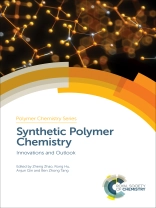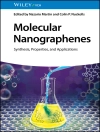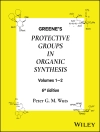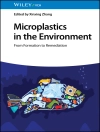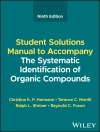Polymeric materials form the basis of daily life. Despite the great contribution of traditional methodologies such as anionic and radical polymerizations in preparing various functional polymers, the increasing demand for polymers with new structures and functions has inspired the development of new synthetic techniques. Many new polymerizations including click polymerization, controlled/living radical polymerization, multicomponent polymerization have been well developed. Focusing on breakthroughs and recent progress, Synthetic Polymer Chemistry provides efficient tools for the synthesis of linear and topological polymers. Chapters cover topics including fabrication of supramolecular polymers, organocatalytic synthesis and olefin co(polymerization). This title will be a valuable reference for those working in polymer chemistry, as well as students and researchers interested in opto-electronic, biological and materials sciences.
Tabla de materias
New Polymers From Su FEx Click Chemistry: Syntheses and Perspectives;
Thiol Chemistry for Precision Polymer Synthesis;
Precise Synthesis of Polyethylene-based Star Polymers: From Anionic Polymerization to Polyhomologation;
Fabrication of Supramolecular Polymers;
Olefin (Co)polymerizations Enbled by Catalyst Design Based on Sidearm Strategy;
Bimetallic Complex Mediated Meso-epoxide Desymmetrization Copolymerization;
Carbon Dioxide Copolymer From Delicate Metal Catalyst: New Structure Leading to Practical Performance;
Chemosynthesis of Poly(ε-Lysine) via Ring-opening Polymerization of Cyclic Lysine;
Fused (Hetero)Cyclic Polymers Synthesized by Alkyne-Based Polymerizations;
Organocatalytic Synthesis of CO2(COS)-based Copolymers
Sobre el autor
Ben Zhong Tang is Stephen K. C. Cheong Professor of Science, Chair Professor of Chemistry, and Chair Professor of Chemical and Biological Engineering at The Hong Kong University of Science and Technology. His research interests include macromolecular chemistry, materials science and biomedical theranostics. Tang received his B.S. and Ph.D. degrees from South China University of Technology and Kyoto University, respectively. He conducted postdoctoral research at University of Toronto. He joined HKUST as an assistant professor in 1994 and was promoted to chair professor in 2008. He was elected to the Chinese Academy of Sciences in 2009 and as Fellow of Royal Society of Chemistry (RSC) in 2013. Tang has published >1, 200 papers. His publications have been cited >58, 000 times with an h-index of 118. He has been listed by Thomson Reuters as a Highly Cited Researcher in both areas of Chemistry and Materials Science. He received First Class National Natural Science Award from the Chinese Government (2017), Scientific and Technological Progress Award from the Ho Leung Ho Lee Foundation (2017) and Senior Research Fellowship from the Croucher Foundation (2007). He is now serving as Editor-in-Chief of Materials Chemistry Frontiers (Co-owned by Chinese Chemical Society and RSC) and Polymer Chemistry Series (RSC).
